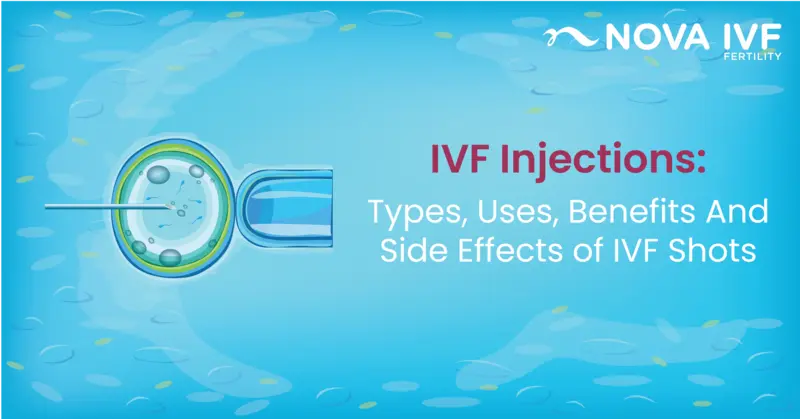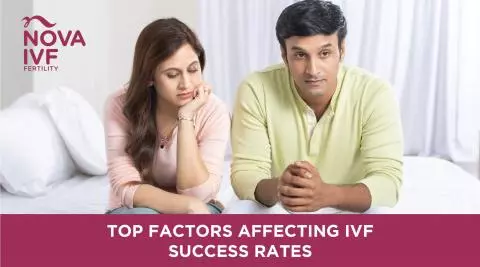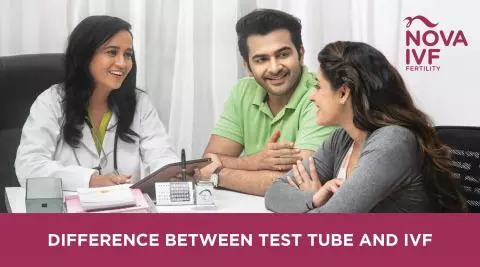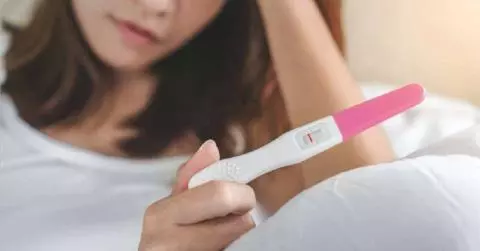A Comprehensive Guide on IVF Injections

If you are planning to do IVF treatment, you may be inclined to learn as much about the treatment as possible. During your research, you are likely to stumble upon IVF injections and women injecting themselves at home. Many people think the process of jabbing needles into your abdomen area and is going to be extremely painful and uncomfortable. However, the reality is slightly different.
IVF injections sting a little temporarily when you inject yourself, but the pain is quite bearable for many women. Understanding the process and learning how to properly administer IVF injections to yourself is extremely important to ensure as smooth an IVF experience as possible. Keep reading to learn more about IVF injections.
Why Injections Are Used for IVF Treatment?
IVF shots are drugs that help stimulate the ovaries to produce several mature eggs in one cycle. These drugs help suppress your natural menstrual cycle and control the ovulation in an IVF cycle. Since these injections are heavy on hormones, they are referred to as IVF hormone injections occasionally.
IVF injections may contain follicle-stimulating hormone (FSH) and luteinising hormone (LH) that stimulate the ovary to develop mature follicles that are further developed into mature eggs before retrieval. Women whose body does not produce substantial amount of progesterone during ovarian stimulation are often given progesterone supplements as well.
Since timing is crucial in IVF treatment, IVF injections provide necessary control over the ovulation and egg retrieval at optimal moment for fertilisation.
How Many IVF shots Are Required for IVF treatment?
Depending on the treatment plan and individual cycle, you doctor will devise a detailed plan for you to administer IVF injections at home or visit the fertility clinic to get your shots. A woman may receive up to 90 IVF shots in one cycle with a daily frequency of 1-2 injections or more. On an average, a woman can expect to take IVF injections for about 10-12 days in total.
Injections for IVF treatment—What to Expect?
Once you have started taking IVF injections for the treatment, you can expect the following:
- From the beginning of the procedure, different parameters of your health, which are relevant to the treatment, are monitored with the help of ultrasounds and blood tests.
- Many women experience an increase in their appetite and body weight as IVF injections affect the basal metabolic rate (BMR) of your body.
- IVF injections for pregnancy can cause to feel sudden emotional outburst or distracted from your usual day-to-day activities.
- Mild constipation and diarrhoea are some of the side effects of IVF injections.
- Elevated levels of stress and anxiety are also reported by women who take injections in IVF.
Please note that if you are experiencing any extreme symptoms, you ought to consult with your fertility expert as soon as possible as these may be indicative of an underlying disease. Your doctor may then recommend a few diagnostic tests or lower your dosage and start the IVF treatment again later.
Types of IVF Injections
Below-mentioned IVF injections are used commonly for the treatment:
Follicle-stimulating hormone (FSH) injections
These stimulate the growth and maturation of follicles in the ovaries. In some cases, human menopausal gonadotropin (hMG) injections, which combine FSH and LH, are given when FSH along may not be enough.
Gonadotropin-releasing hormone agonists (GnRH Agonists)
These injections are used to suppress the body’s natural production of hormones and natural menstrual cycle of the women; GnRH prevent premature ovulation.
- Lupron injections: A type of GnRH agonist, lupron injections temporarily inhibits the natural reproductive hormones of the body.
- Lupride injections: Lupride injections also suppress the natural production and release of reproductive hormones.
Gonadotropin-releasing hormone antagonists (GnRH antagonists)
This medication is also used to suppress the natural reproductive hormones of the woman’s body, but these work quickly than GnRH agonists. Doctors prescribe these injections closer to the anticipated time of ovulation in the ovarian stimulation phase of IVF.
Human chorionic gonadotropin (hCG) injections
These injections enhance the success chances of pregnancy and are administered after embryo transfer. They play a crucial role in preparing the uterine lining for the implantation of the embryo.
Menopur injections
These injections also combine FSH and LH to stimulate the growth and development of multiple follicles.
Progesterone injections
After egg retrieval, you will be given progesterone injections to prepare the uterine lining for embryo transfer. This medication helps with ensuring the optimum thickness of the uterine lining to facilitate implantation.
How do I give IVF injections to myself?
IVF injections for pregnancy are required to be administered either subcutaneously, which means directly into the layer of fat underneath the skin, or intramuscular, which means directly into the muscle. Here is a step-by-step guide on how to administer IVF injections to yourself subcutaneously (preferred by most women):
- Choose your injection site from either the abdomen, thigh, or upper arm’s backside
- Using rubbing alcohol, clean the injection site
- Prepare your syringe
- Hold the syringe like a pencil, squeeze your skin, and insert the needle quickly into the skin at a 90° angle with a dart-like motion
- Pull the plunger of the syringe a little to check for blood
- Inject the medicine if there is no blood
- Remove the injection, change the needle, and repeat the process if there is blood
- Let go of the pinched skin and gently remove the needle in a swift motion
- Dispose of the syringe in an appropriate container
You are advised to keep alternating your injection sites to avoid soreness and discomfort in a particular region. Many fertility clinics take back used syringes at the end of your cycle to dispose as well.
Benefits of Taking IVF Injections
IVF injections offer four main benefits:
- Controlled ovulation and increased flexibility
Injections given at the initial stages of ovarian stimulation suppress the production and release of body’s natural reproductive hormones. Thus, providing control over the timeline of ovulation.
- Multiple mature oocyte development in a single cycle
Usually, only one oocyte or egg is released during one menstrual cycle. With the help of IVF injections, doctors are able to retrieve multiple oocytes in one cycle.
- Increased chances of success during an IVF cycle
Higher the number of oocytes, higher the chances of successful fertilisation, which further increases the chances of successful implantation after embryo transfer.
- Personalised treatment
IVF injections can be tailored as per each individual’s needs by the fertility specialist to optimise the outcomes of IVF treatment for everyone.
Side Effects of IVF Injections
Injections in IVF treatment contain hormones that can impact the body in several ways. Here is the list of some common things you may experience during the initial stages of IVF treatment:
- Headaches
- Hot flashes
- Abdominal pain
- Bloating
- Nausea
- Frequent mood swings
- Irritability
- Mild constipation
- Diarrhoea
- Night sweats
- Tender breasts
- Restlessness
- Dizziness
- Temporary blurred vision
- Increased appetite
- Increasing weight
- Changes in the cervical mucus
- Ovarian hyperstimulation syndrome (OHSS)
Please note the OHSS is a serious condition that can become life-threatening as well. Symptoms of OHSS include severe abdominal pain, sensitive stomach, bloating, and tender breasts. You are advised to talk to your care provider as soon as you notice symptoms resembling OHSS.
IVF treatment—a beacon of hope
Injections used in IVF treatment are a major player in enhancing the success chances of your IVF cycle. Every injection you take during the ovarian stimulation phase, first stages of IVF, prepares your body for the next stages of IVF. IVF is usually not considered a painful procedure, but it can be a little challenging. However, the benefits of IVF treatment far outweigh the risks and complications associated with IVF injections and other stages of IVF.
It is important to understand the entire IVF procedure properly, discuss your concerns or doubts with your fertility expert, and learn how to administer injections properly at home if you want to optimise the chances of success of your IVF cycle. Remember to contact your care provider if you are experiencing any extreme symptoms.
FAQs about IVF Injections
Q. When should I take the IVF injection?
A. Your fertility expert will give you clear instructions on when and how to start taking your IVF sots. This could be either after your visit to the fertility clinic on day 2 or 3 of your period as well.
Q. Is IVF a painful procedure?
A. No. Generally, IVF is not considered a painful procedure. However, you may experience soreness at the injection site during ovarian stimulation and cramping and clear/bloody vaginal discharge after the egg retrieval process.
Q. What is the role of injections in IVF?
A. IVF injections are used to ensure the ovaries develop multiple mature eggs, which directly increases the chances of successful fertilisation of the eggs in the embryology lab.
Q. Can I get pregnant through IVF injections?
A. IVF injections stimulate your ovaries to develop and mature multiple eggs at once. These eggs are then retrieved and fertilised in a lab. IVF injections increase your chances of a successful pregnancy.
 Infertility Counselling
Infertility Counselling Female Infertility Treatment
Female Infertility Treatment Andrology Treatment
Andrology Treatment Fertility Enhancing Surgeries - Female
Fertility Enhancing Surgeries - Female Fertility Enhancing Surgeries - Male
Fertility Enhancing Surgeries - Male Endoscopy Treatment
Endoscopy Treatment IUI Treatment
IUI Treatment IVF Treatment
IVF Treatment ICSI Treatment
ICSI Treatment Advanced IVF Solutions
Advanced IVF Solutions Embryology
Embryology Vitrification Egg, Embryo, Sperm Freezing
Vitrification Egg, Embryo, Sperm Freezing Preimplantation Genetic Testing (PGT)
Preimplantation Genetic Testing (PGT) Donation Program Embryo / Egg / Sperm
Donation Program Embryo / Egg / Sperm Self-cycleTM IVF
Self-cycleTM IVF

 Self-cycleTM IVF
Self-cycleTM IVF










